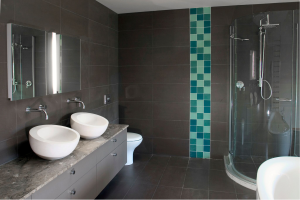Conservatory Care Guide
Use our simple guide to ensure you can enjoy your conservatory to its full potential
Written on November 17, 2016
According to the Home Advice Guide, the average cost of buying a UPVC conservatory and having it installed is £7,000 with a lower limit of around £6,500.
is £7,000 with a lower limit of around £6,500.
Regardless of how much (or how little) you spend on your new conservatory, it’s bound to be a major expense that you’ll undoubtedly want to get the most out of.
A well-maintained and professionally installed conservatory can even add between 7 and 11 percent to the value of your home, according to property expert Phil Spencer.
After months of planning and saving money for your perfect home extension, you’ll no doubt want to be able to enjoy your new conservatory to its fullest potential.
As such, you’ll need to keep on top of care and maintenance to keep it in the best condition.
Although your conservatory might be a natural extension to your property, it requires a slightly different care routine, which we’ll be looking at in this guide.
Key Points
Keeping condensation to a minimum will help to increase the lifespan of your conservatory.
If your conservatory features self-cleaning glazing, it will take at least a week, depending on its exposure to UV radiation, to activate.
You can use a hairdryer to blow away debris that collects on the back of your conservatory blinds.
A light lubricant, such as petroleum jelly or WD40 will be adequate for squeaky hinges, and it only needs to be applied in small amounts.
Any small gaps at the edges of doors or windows should be sealed using a suitable mastic sealant to prevent damp from getting inside the conservatory.
Routine Care and Cleaning
You probably already clean your house every week or more often, so it only makes sense to incorporate your conservatory into your regular cleaning schedule.
How much cleaning is required depends on various factors, but conservatories do have a habit of getting dirtier than most other parts of the house.
For example, dust and dead flies can quickly build up beneath blinds, and the large surface area of glass tends to attract a great deal of dirt from bad weather and unwanted visits from birds.
As such, you’ll likely need to clean your conservatory more intensively than the rest of your house at least once per week, particularly with regards to keeping the glass and blinds clean.
Caring For The Interior
When buying a new conservatory, it’s particularly important that you choose quality glazing, preferably along with the added protection of an insurance-backed guarantee.
The reason for this is that poor-quality glazing with a low thermal transmittance can lead to increased condensation which, in turn, can lead to damp and mould.
While you can never expect to eliminate condensation entirely, keeping it to a minimum will help to increase the lifespan of your conservatory and keep it a safer and more comfortable room to use.
How Can Condensation be Reduced?
To reduce condensation, particularly during cold weather, you should keep your conservatory as well-ventilated as possible.
Keeping everything closed but heated during the winter, for example, is a sure way to promote condensation and mould growth.
Keeping doors and windows open on occasion can help, but might not be practical in cold weather. However, most conservatories should have trickle vents in the eaves or ridge or, if not, a small window or vent in the roof.
Provided there is an airflow (it doesn’t even have to be very noticeable), it’s unlikely that condensation will ever become a problem.
It is particularly important that you keep a new conservatory well-ventilated for the first couple of months after being installed. This is because enormous quantities of water are used during the construction process for things like plasterwork, dwarf walls and concrete foundations.
Most manufacturers consider four to six weeks’ minimum to be an optimal drying-out period.
If you had your conservatory installed just before or during winter, it may take a few more weeks for the structure to dry out completely, depending on weather conditions.
Either way, you should pay special attention to keeping your conservatory ventilated when it’s still new.
Caring For Glazing
Conservatories are designed to bring the outdoors inside, so they quickly lose their appeal if the glass gets dirty.
Cleaning your conservatory glazing is no different to cleaning your windows, although it can be a bit more complicated to clean the roof glazing.
When cleaning your glazing, be sure to only use suitable glass-cleaning products, plenty of water and a non-abrasive cloth. Afterwards, use paper towel to dry the surfaces and give the windows a fresh shine.
Higher-end conservatories often use specialised glass that stays cleaner for longer than normal glass, but there’s no such thing as 100% maintenance-free glazing. However, it is important to avoid cleaning your conservatory glazing for at least a week after installation, since doing so prematurely can damage any sealant that hasn’t had a chance to properly set.
If your conservatory features self-cleaning glazing, it will also take at least a week, depending on its exposure to UV radiation, to activate.
It is imperative that you follow the manufacturer’s guidelines when caring for your glazing, lest you risk invalidating your warranty.
In particular, be sure to avoid using any cleaning products that are not suitable, such as
- Chemical products containing things like white spirit, silicone, bleach
- Or any other abrasive particles.
To prevent scratches, you should also avoid using any abrasive objects, such as steel wool or scouring pads, even if you are trying to get rid of a particularly stubborn stain.
Scratches or grazing that appear in the glazing should be treated with extra special care, particularly in the case of self-cleaning glass where the outermost layer can easily be damaged if you use the wrong cleaning methods.
For standard glass, you can sometimes use a specialised rubbing compound to get rid of smaller scratches, although you should contact your installer for advice specific to your glazing product.
Caring For Blinds
Caring for conservatory blinds, particularly those installed along roof panes, might not be the most appealing of household chores, but a regular maintenance routine can save you a lot of work in the longer term.
Roof blinds especially tend to collect a large amount of dust, cobwebs and dead insects, and these can contribute significantly to allergies.
Regular vacuuming is important, but you’ll need to make sure you have the right hose fittings to be able to access the hard-to-reach places that often get overlooked.
You can also use a hairdryer to blow away detritus that collects on the back of the blinds.
A feather duster or a soft brush fitting for your vacuum cleaner can also make the job easier.
Ideally, you should clean the blinds every week, particularly during the summer months when there are more insects around.
Regularly opening and closing blinds will help to keep them clean and prevent them from becoming havens for dust and insects. However, you will need to remove them occasionally for a more thorough cleaning.
Some materials are machine-washable, although you should always check with your supplier before putting any blinds in the washing machine.
Wood or straw blinds can only be dusted and vacuumed, while Venetian blinds may be cleaned with a damp cloth before drying thoroughly.
If you’re installing blinds yourself in your new conservatory, you will need to remember that they must allow for proper air circulation between the glazing and the blinds. Most installers recommend a space of at least 15 mm between the two. It is also recommended that you have a roof vent installed if you have blinds installed along the roof panes.
Caring For Locks, Hinges And Handles
Locks, hinges and handles generally don’t require regular maintenance, but they do need some occasional attention, particularly if any fittings start to squeak.
Any moving parts, such as hinges, should be adequately lubricated.
A light lubricant, such as petroleum jelly or WD40 will be adequate, and it only needs to be applied in small amounts.
Be careful to avoid getting anything on the glazing or other parts of your conservatory.
Caring For Mastic Sealant
Any small gaps at the edges of doors or windows should be sealed using a suitable mastic sealant to prevent damp from getting inside the conservatory.
Although discolouration of this mastic seal is natural and inevitable over time, any actual damage to the seal should be dealt with promptly to prevent leaking and damage to the surrounding area.
If you plan to carry out any such repairs yourself, make sure to consult the installer or manufacturer beforehand.
Caring For Gutters
Keeping on top of your home’s gutter and downspout maintenance is particularly important in countries like the UK where there’s quite a lot of rain.
The same applies to the gutters around your conservatory.
They should always be kept clear of debris to promote proper flow of water down the downspouts and into the drains.
Be sure to give them a thorough clean after a storm.
Finally, you can use a specialised steam cleaner to thoroughly clean the underside of the gutters as well as soffit boards, glazing and conservatory framework.
And Finally…
Having a new conservatory can seem like a lot of extra work, but by incorporating it into your regular cleaning routine, you’ll be able to keep it looking at its best for longer while also giving your family a comfortable and pleasant place to use throughout the year.
Even just taking a few simple steps to prevent condensation or the build-up of dust on roof blinds can save you a great deal of work in the future, while also extending the life of your investment.
Are you looking to have a conservatory installed or do you have questions about a possible installation? Why not find a tradesman?
This information is for general purposes only, does not constitute legal, financial or professional advice and should not be relied on or treated as a substitute for specific advice relevant to particular circumstances.
Key Points
Keeping condensation to a minimum will help to increase the lifespan of your conservatory.
If your conservatory features self-cleaning glazing, it will take at least a week, depending on its exposure to UV radiation, to activate.
You can use a hairdryer to blow away debris that collects on the back of your conservatory blinds.
A light lubricant, such as petroleum jelly or WD40 will be adequate for squeaky hinges, and it only needs to be applied in small amounts.
Any small gaps at the edges of doors or windows should be sealed using a suitable mastic sealant to prevent damp from getting inside the conservatory.


Other Pages You May Like
Windows are easy to care for – if you know how. Follow our easy to use care guide for some tips on how to keep your windows clean.
Have you ever wondered about how to unlock a drain or repair grout? Or whether you’re cleaning your bathroom correctly? Why not read our Bathroom Care Guide.



